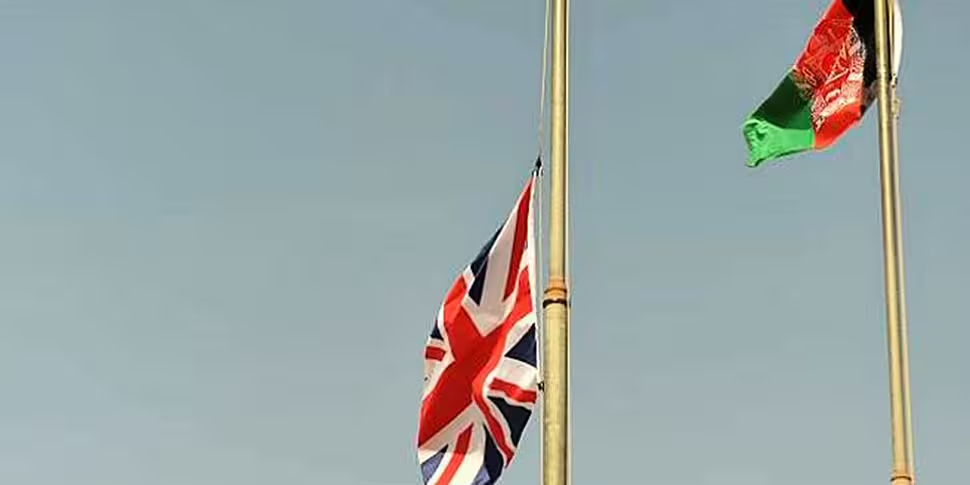Britain's 13 year involvement in the conflict in Afghanistan is over, as troops withdraw from Camp Bastion.
It is now being handed over to Afghan forces.
Captain Doug Beattie, who is from Portadown and who served at Camp Bastion, wrote a book about his experiences.
He says many of those drafted to Helmand were shocked at how big the camp became:
In a symbolic ceremony at Camp Bastion, the Union Flag was lowered for the last time, marking the formal handover of power to Afghan Forces.
That simple act brought the 13-year war to an end for British forces - the longest conflict in modern times.
At a peak, 9,500 British military personnel were based in Afghanistan as part of Operation Herrick.
Camp Bastion was the epicentre of operations. A further 136 smaller bases were dotted around Helmand Province in the south of the country.
Towns such as Musa Qala, Sangin and Nad Ali, were scenes of bloody fighting. They became infamous in Britain for the toll fighting took on British forces.
In total, 453 British lives were lost fighting the Taliban. Thousands more were injured, many permanently.
The deadliest year was 2009, when 108 British troops were killed.
Defence Secretary Michael Fallon said: "It is with pride that we announce the end of UK combat operations in Helmand having given Afghanistan the best possible chance of a stable future."
Camp Bastion grew out of nothing to become a monstrous fortress in Helmand to accommodate ever-growing numbers of troops and the increasing demands of a vicious fight against the Taliban insurgency.
Early on the British Government sought to wipe out the illegal opium poppy trade, but that failed and the mission moved on.
An 11,500 ft runway was built allowing the largest transport planes to fly in at any time of the day or night. Bastion became the third busiest British airport after Heathrow and Gatwick.
The first rotations of troops deployed with sub-standard equipment, when the initial emphasis was on reconstruction.
Very quickly they found themselves in close-quarter fights. New technology had to hurried through to protect against the Taliban's maturing tactics, principally roadside IEDs.
A shortage of helicopters to move troops, equipment and supplies, was finally addressed after considerable public and media pressure on the government and senior military chiefs.
The hospital in Bastion became a world leader in trauma medicine, attracting and training surgeons and nurses from the military and NHS.
If a casualty made it to the hospital within an hour of being wounded on the battlefield they had a 98% chance of survival.
Although combat operations are now over, British involvement in Afghanistan will continue for a number of years.
A few hundred will be based at the Qargha Officer Training Academy outside Kabul.
It has been nicknamed "Sandhurst in the Sand" and is Britain's contribution to Operation Resolute Support, the name for the training and advisory mission to Afghan forces.
Special Forces operations will also continue in the country for the foreseeable future.









